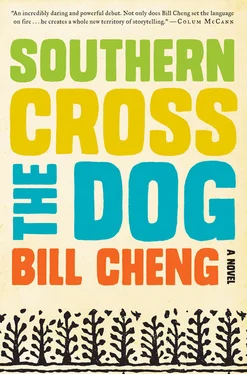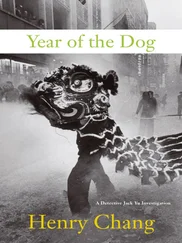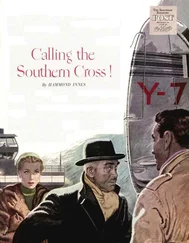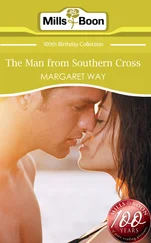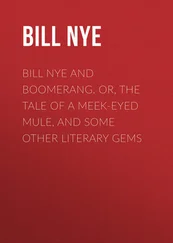This way, he muttered.
They sat down on a small workbench outside of the barn. There was a small oil lantern going and a bed of warm coals to boil the coffee. Robert poured a little for himself and for Frankie.
Drink this, he said.
She took the cup in her hands and moved to kiss him. He pushed her away.
No, he said. Not here.
The cup was warm against her hands. She wanted to tell him about the swamp, and the spreading bugheway and all that had happened to her, but the words welled up inside her. Through the walls, the music sounded far away.
Is very good seeing you, Rowbear, she let herself say.
Let’s just sit here awhile, he said.
He sat with her while she sobered. Once he held her hand and squeezed it, but then soon after let go. From time to time, he would be called away inside to wipe down some mess or to break up a fight. Still he’d return shortly to his place on the bench beside her. They didn’t speak. Frankie stared at the embers, felt the warm return to her face. She fell asleep with her head against the barn wall and when she awoke, he was still next to her, asleep as well. His eyes were closed and she looked at his long womanly lashes. She stroked his hand and he awoke with a start. Robert looked around him, slightly dazed.
Good morning, he said thinly.
She put her hand to his cheek and he jumped.
Please.
The embers were dead and he took the kettle off its stand.
I have to go, he said.
Can I see you again?
Robert gazed at something in the distance. Frankie couldn’t see what it was.
This afternoon. Four o’clock. Right here.
He returned the kettle inside the barn. Frankie wondered if she should stay here and wait for him to come back, but she decided against it. She stood up and made her way to the road.
IN TOWN, SHE MET A rancher who was driving his herd north to his graze lands. For two dollars, he’d truck her as far as Coahoma along the Arkansas border. From there she’d have to find her own way. When? she asked him. Tomorrow morning, he said. They shook hands and arranged to meet outside the market at dawn. Frankie spent the rest of the day wandering the nearby countryside. In the morning sun, the wind was cool and swift. She loved the crackle of dry grass, the sweeping blue of the sky above her. She winged a rabbit with a rock and roasted it on a spit. The meat was tender and hot and sweet.
She napped on a hillock and thought about her mother’s country, Snakebite Creek, where the first L’Etang had crossed into the knee-deep cold and washed the French from their blood. It was a place she’d heard about only in story — a trapper country where the waters were swole with trout and beaver, and where the L’Etangs fatted and thrived. She wondered why Pierre had laid root so far south, away from kin. She watched the clouds roll in from the west, wide and plowed and full of country. She knew.
She found a pond where she could wash her face and hands. A skein of geese circled overhead then taxied across the water.
There was a rustle in the bushes. Frankie turned to find a large black dog making its way toward the pond edge. It was mangy and hobbled, its hind leg scabbed purple. It did not seem to notice her. It bent its head to the water and lapped at it. She felt a swell of pity. Its gray tongue darted back and forth. She reached into her pouch for a piece of rabbit. She called out to it, but it did not hear her. She moved toward it and knelt beside it. The animal swung its head around and looked at her dully. She showed it the meat. It would not take it.
She left the meat in the dust and walked away.
BY FOUR, ROBERT WAS WHERE he said he’d be. There were chairs stacked against the barn wall, and Robert busied himself with them. The wood had been stripped to the white and he was working the seats with a washrag. His shirt was dark with linseed oil and as Frankie made her way from down the road, he dropped the rag and rinsed his hands in the wash bucket. She watched him straighten, hands dripping. He wiped them on his trousers and left two large prints. She tried not to smile.
I’m glad to see you, she said.
Robert looked at her. He was moving something in his mouth. There was a cut above his eye that was still fresh. It made him squint.
What happen ’a you face?
He shook his head and waved it away.
I’s a goin’ north. Not coming back.
I see, he said.
Come with me.
I can’t, he said.
Something inside her snapped free and plummeted. The color rose to her face. She wanted to ask why, but the question was small and stupid. She was small and stupid. She looked at him and his face softened. He walked to her and put his arms around her. She could smell the linseed, strong and chemical. He combed his fingers through her hair. His body was warm. She felt some muscle buckle inside of him. She thought he might break.
Okay, she said. Bon.
She pulled away and his head drooped from her shoulder. He wiped something from his face and stared at the grass. She wanted him to look at her and meet her eyes. He wouldn’t. She tried to think of something to say, something pretty or lasting, but there weren’t any words.
THE NEXT MORNING, SHE WAITED outside the market in the full dark. The rancher rode in on an old-fashioned horse-drawn and they set out north on the road to Coahoma. He wrangled thirty head of piebald cattle, and they drove through the indigo light.
There, he said to her.
She turned to where he was pointing, his gloved hand stretching east. There was the sun, burning behind the hills, brittle and beautiful.
Robert watched the man at the bar pitch forward, then slump. The man cradled his glass and muttered to the barman and the barman nodded and said, Yes, yes, I know. Who doesn’t know? I know. The rest of the juke had cleared and they were anxious to close. The chairs had been stacked, the barrelheads wiped clean. The other glasses were sitting in a tub of soapy water, and Robert propped himself on the table edge and fought against sleep. The man shouted something, then tried to stand.
Easy, Joe, easy, the barman said.
The man took his squashed hat from the stool next to him and placed it on his head.
You’re right. When you’re right, you’re right, he said.
He shook the barman’s hand.
Goddamn it when you’re right, he said.
He smoothed out the wrinkles in his suit and made his way out.
When he’d left, the barman let out a sigh and grinned at Robert.
What was he saying to you?
The barman laughed.
Who knows? Who even listens anymore?
Robert cleaned the last glass and swept up behind the bar. The barman counted the money in the till and portioned out Robert’s wages, stacking the soft bills on the counter. Robert reached for it and the barman laid down his big fat hand.
I want to say I really like the work you’re doing here, he said.
Robert put the money in his jacket.
You’ve got spirit, you know? Not like that friend of yours. That layabout, G.D.
Go to hell, Robert said.
The barman laughed again. Don’t forget to shovel out that shithouse tomorrow. It’s been backed up for ages.
Four in the morning, they closed out the juke and chained the doors. Robert took a small oil lantern home to light his way. He looked over his left shoulder and saw the moon there, big and scarred and ugly. He climbed up onto the porch, set the lantern by the door, and went inside. Dora was already asleep. He could hear her snoring softly on the mattress. He undressed and lay beside her. She let out a soft moan.
What time is it?
Almost morning. You want to sit up and watch the dawn?
She mumbled something, then started snoring again.
Robert lay on his side and looked out the window. The night was solid black and there was nothing to see. He wondered how many more hours till first light would break through the pane. Forget it, he thought. He turned over and shut his eyes and felt the heat of the small warm thing beside him. Little by little, he felt himself slipping, sinking beneath his own body, through the mattress, the floor, into the cold earth, and deeper still in the yawning dark, to that place of lost and losing.
Читать дальше
